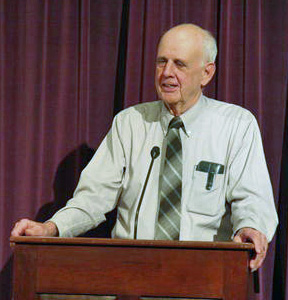Mindful Eating: Farmers, the Land, and Local Economy
I begin with the proposition that eating is an agricultural act. Eating ends the annual drama of the food economy that begins with planting and birth. Most eaters, however, are no longer aware that this is true. They think of food as an agricultural product, perhaps, but they do not think of themselves as participants in agriculture. They think of themselves as “consumers.”
—Wendell Berry, The Pleasures of Eating, Center for Ecoliteracy
The Times They are a-Changin’: Move Towards a Local Economy
After a few very difficult years, we are now only starting to talk about the importance, and even necessity, of maintaining and supporting a local economy. This is important not only to our health and taste buds, but also to our vital economic self-sufficiency. It is perfectly in line with the concept of Mindful Eating, and, by definition, involves local farmers as well as others who contribute to eating and drinking.
|
|






































